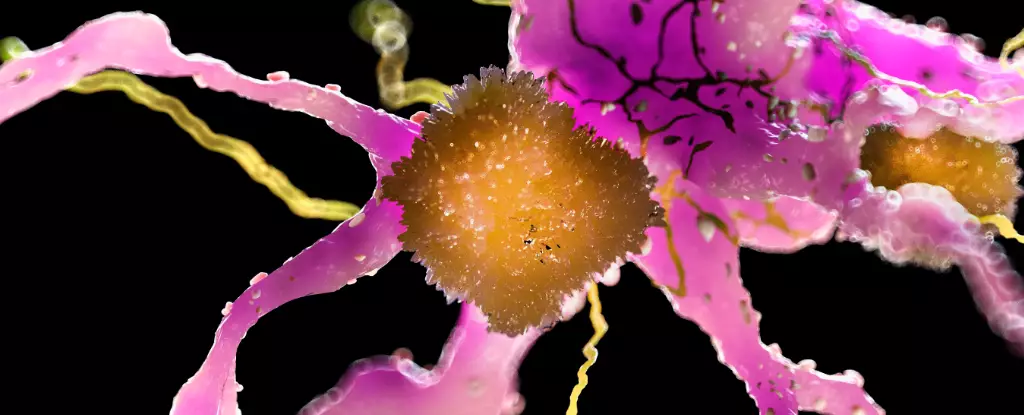The landscape of Alzheimer’s disease research is undergoing a transformative shift, driven by groundbreaking findings that reveal the potential for delaying both the onset and progression of this devastating condition. At the forefront of this revolution is a study led by Washington University’s neurologist Randall J. Bateman, who expresses a newfound optimism towards the future of Alzheimer’s prevention. The implications of these findings could reach millions, as they offer the first glimmers of a scientific breakthrough aimed at those genetically predisposed to the disease—a demographic previously thought to be a lost cause.
This study explores an innovative approach involving individuals with Dominantly Inherited Alzheimer’s (DIA), a rare genetic mutation linked to early-onset Alzheimer’s, triggering the production of amyloid proteins. Although these mutations account for merely one percent of overall Alzheimer’s cases, they present a daunting inevitability for those affected, typically manifesting symptoms by their 50s. The research is a beacon of hope, signaling that even this relatively small group may soon have the option to mitigate their risk through emerging therapies.
The Dual Antibody Approach: Progress Against the Odds
A pivotal component of this research centers around a dual-antibody treatment that arguably redefines our understanding of Alzheimer’s management. Despite a phase 3 clinical trial that ultimately did not yield the desired impact on cognitive symptoms, researchers have identified a compelling silver lining: the antibody known as gantenerumab has demonstrated a remarkable ability to improve underlying disease pathology itself. Although clinical trials can often paint a bleak picture of immediate effectiveness, the long-term potential of gantenerumab cannot be understated.
Following the initial trial period, an extension was introduced, allowing more participants with high-risk genetic mutations to partake in the treatment irrespective of previous placebo assignments. This decision stemmed from observations indicating that even partial treatment had significant implications; participants who received higher doses of gantenerumab exhibited a sustained risk reduction of developing symptomatic Alzheimer’s by a staggering fifty percent.
The Age of Prevention: An Unfolding Narrative
As the research progresses, it is becoming increasingly evident that time plays a crucial role in understanding the implications of these findings. The mechanism of delayed onset is particularly noteworthy for individuals who might face cognitive decline as they age. The risk, while initially daunting, may decrease substantially for those who have engaged with these new therapies over extended periods.
Bateman’s reinvigorated optimism encapsulates a broader sentiment within the research community: that delaying the onset of Alzheimer’s symptoms could translate to significantly enhanced years of quality life for those genetically destined to develop the disease. The prospect of transforming the narrative around Alzheimer’s from a trajectory of decline to one of proactive management is no longer a mere hope but is backed by compelling initial evidence.
Weighing Risks and Benefits: A Cautious Journey Forward
Nevertheless, it is imperative to approach these advancements with cautious optimism. No therapeutic intervention comes without risks, and gantenerumab is no exception. The potential for adverse effects like microbleeds in the brain raises significant safety concerns, especially in the context of an already complex disease where the progression itself can lead to similar issues. Conducting comprehensive and long-term assessments of both efficacy and safety is paramount in navigating this new frontier.
In parallel to these findings, several other innovative anti-amyloid therapies have carved a path in clinical settings in the United States, offering hope to patients who have already begun their descent into Alzheimer’s. While the preliminary data surrounding these therapies is promising, it remains to be seen whether they can be tailored for preventative measures for those at risk.
Ultimately, the trajectory of Alzheimer’s research is shifting from a narrative dominated by despair to one that embraces the potential for empowerment through science. As further studies refine our understanding of the underlying mechanisms at play, the prospect of delaying or even preventing Alzheimer’s in future generations is conceivable. The journey of hope has only just begun.

